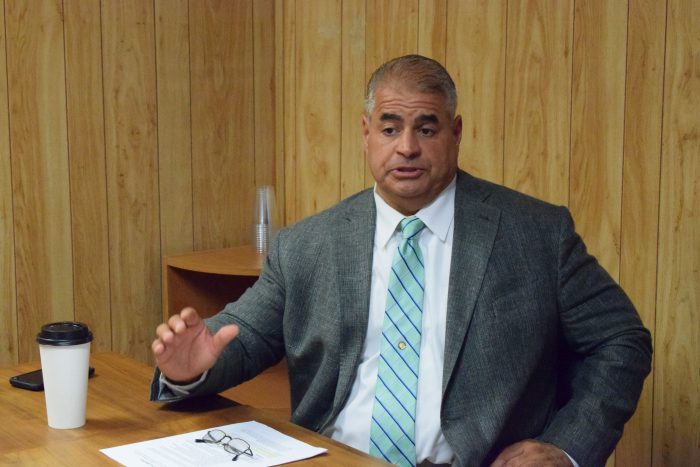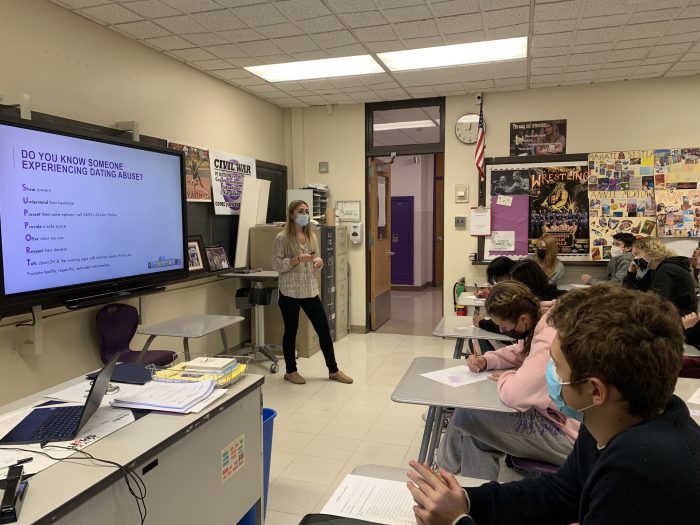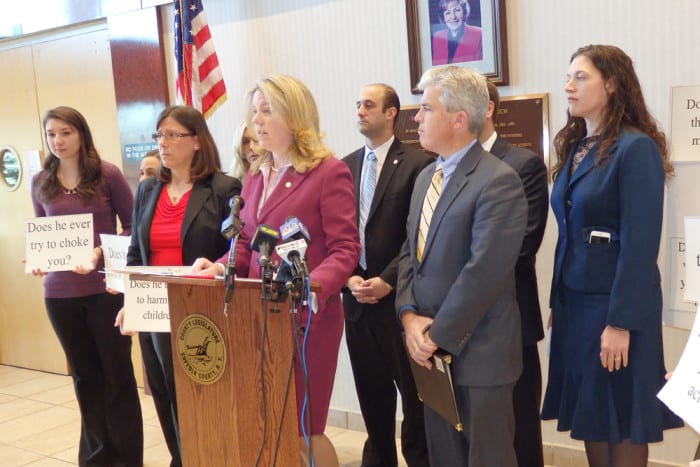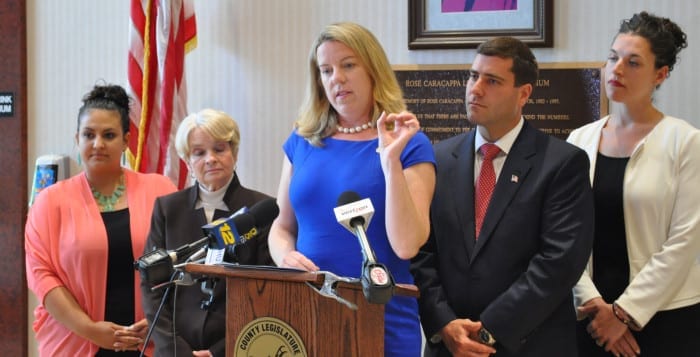By Julianne Mosher
There is hope for survivors of sexual assault and domestic violence thanks to the founders of Islandia-based nonprofit ECLI-VIBES.
Co-founded by Feride Castillo and Jennifer Hernandez, ECLI-VIBES is dedicated to creating a safe and supportive community for individuals affected by domestic violence, sexual assault, human trafficking and abuse. Through their trauma-informed and culturally sensitive approach, they work to break the cycle of violence, one life at a time, by empowering individuals to achieve safety, independence and healing through their services.
ECLI-VIBES not only serves survivors but also helps their families by providing essential resources and support to help them rebuild their lives. On average, they serve more than 2,500 people every month.
“ECLI-VIBES began with a small spark nearly 10 years ago,” Hernandez said. “We founded ECLI with the idea that we create something extraordinary when we pour love and care into others.”
According to their website, a major cornerstone of the group’s mission is to foster a warm, welcoming and supportive environment where individuals facing trauma feel safe, respected and understood. At ECLI-VIBES, they believe that trauma is the catalyst for complex issues rooted in violence and abuse. They aim to uncover and address the underlying causes of trauma, enabling genuine healing and lasting transformation.
“That tiny spark has grown into a flame, one that burns brighter than ever as we work tirelessly to empower survivors of domestic violence, sexual assault, trafficking and abuse,” Hernandez added.
Castillo said that the duo wanted to build a space that supports individuals, heals generations and breaks cycles.
“True transformation happens in spaces where people feel connected, loved, validated and seen,” she said. “My goal is for everyone to know what it’s like not to feel alone and empowered by the support of a team that believes in them every day.”
Some services that ECLI-VIBES boasts is a 24-hour “hopeline” that is available to all members of the community who are seeking crisis intervention, emotional support, information on victim rights and other resources.
They also host a youth program that provides support and mentorship to children and teens, a community food pantry, counseling, an advocacy program, housing program and legal programs, among others.
“This work is not just about providing services — it’s about creating a community where love and resilience lead the way,” said Hernandez. “People are inherently resilient, and love is what brings that strength to the surface. My passion comes from knowing that we all rise when we share our light with others. My job is to keep my cup overflowing so I can pour into my team and help them pour into our community. Together, we create the kind of impact that changes lives and builds brighter futures.”
“At its core, ECLI-VIBES was designed to put the ‘human’ back into human services — to be a place where people can rediscover hope, tap into their inner strength and heal,” Castillo added. “Every day, I am inspired by the power of human resilience as individuals take the courageous step to reach out, no matter how impossible their circumstances may seem.”
ECLI-VIBES also has created an Anti-Human Trafficking Program that supports individuals who have experienced human trafficking, helping them through complex issues they might have faced by utilizing a holistic approach with cost-free services.
“Human trafficking has been an ongoing issue in our county, and I am proud to work with ECLI-VIBES to support the victims and combat the traffickers,” said Suffolk County Legislator Chad Lennon [R-Rocky Point].“ In addition, ECLI-VIBES has been providing help to so many other people throughout our county.”
Hernandez said that ECLI-VIBES’ mission is to ensure that survivors have access to everything they need to “survive and thrive.”
“We have the privilege to stand in solidarity with them, offering not just services but an open heart, a shoulder to cry on and someone who listens to guide them toward long-term healing,” she said. “We are dedicated to supporting the mindset that empowers individuals to reclaim their power and self-sufficiency.”
For their passionate education and advocacy, TBR News Media is pleased to name Feride Castillo and Jennifer Hernandez 2024 Persons of the Year.
“As I reflect on this journey, I’m reminded of the incredible power of community and the importance of leading with love. ECLI-VIBES was built on this foundation, and it’s what continues to guide us as we create lasting change for the individuals and families we serve,” Hernandez said. “This honor is not mine alone — it belongs to every survivor who’s trusted us, every team member who’s shown up, and every person who’s believed in our mission. Love is what our community needs and will always lead us forward.”
Castillo said that the co-founders have always believed they are “the extended family member, cousin or friend who will pick up your call when you’re in need and figure out a way to help you.”
“No one should have to face the hardest moments of their life alone,” she added. “That’s why we’re committed to breaking down barriers and removing gatekeeping to provide tangible, life-saving information and resources. It’s about creating spaces where people feel supported, validated and empowered to reclaim their power and take back their lives.”
If you need help or know someone who does, visit www.eclivibes.org or call 631-360-3606.














